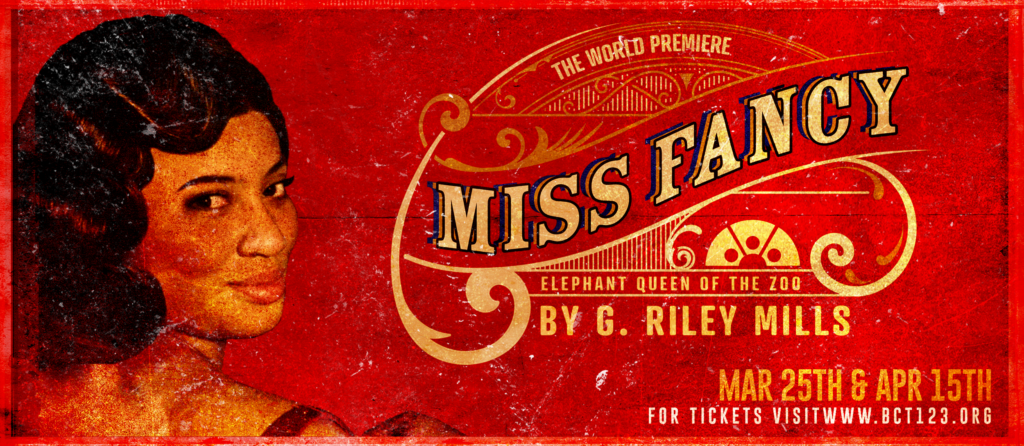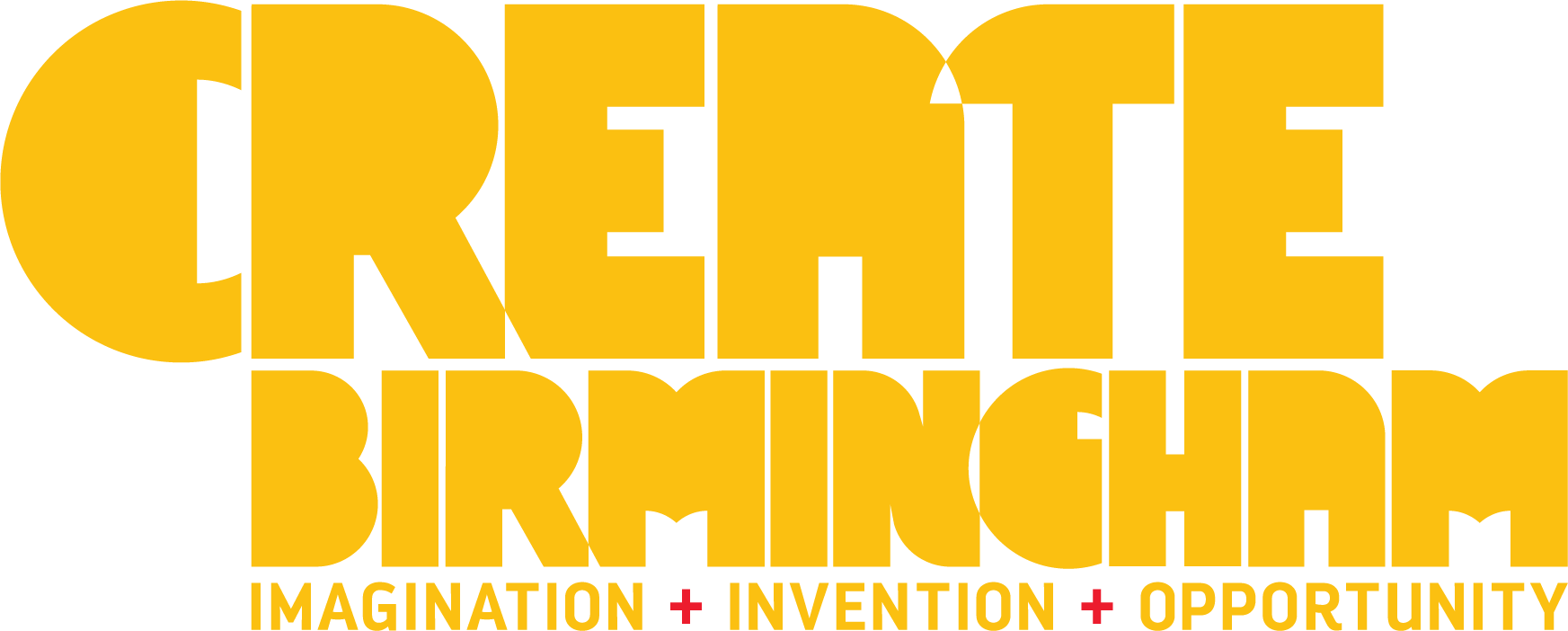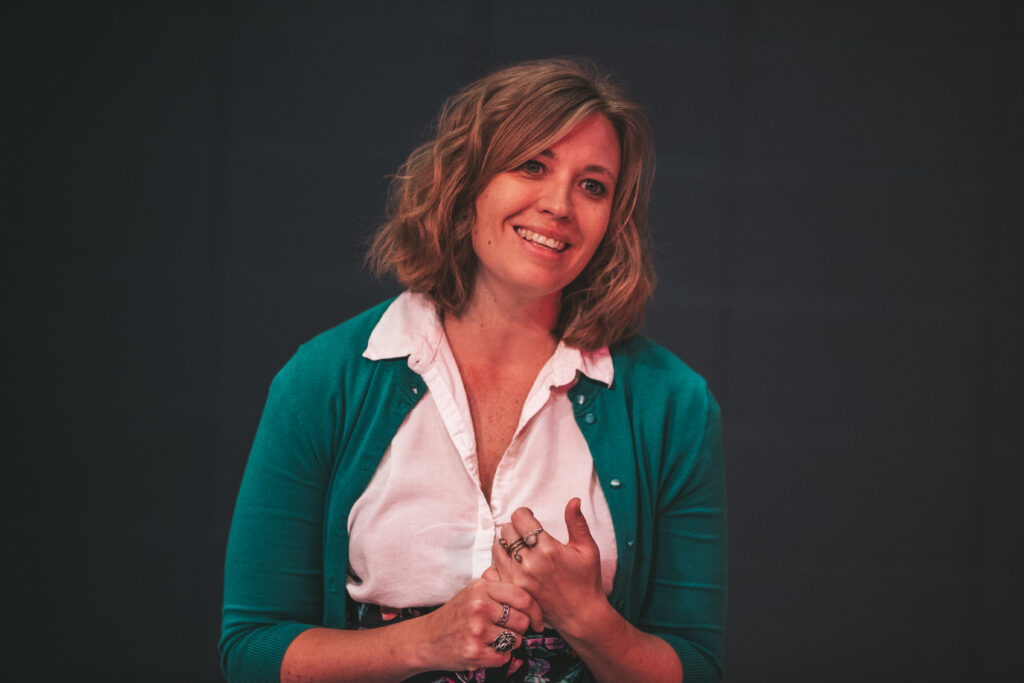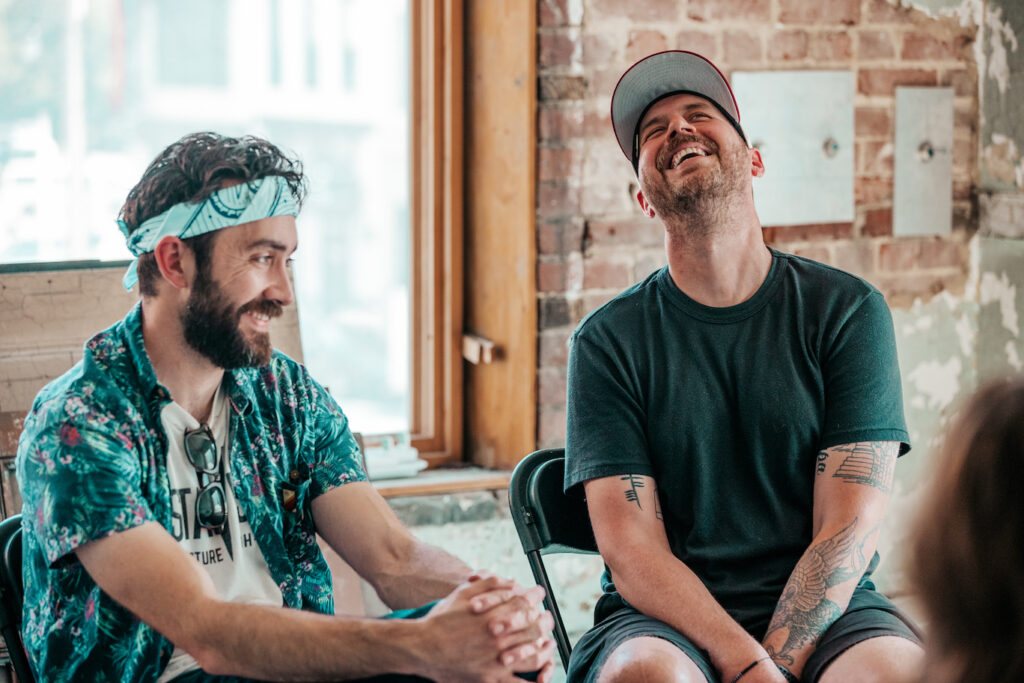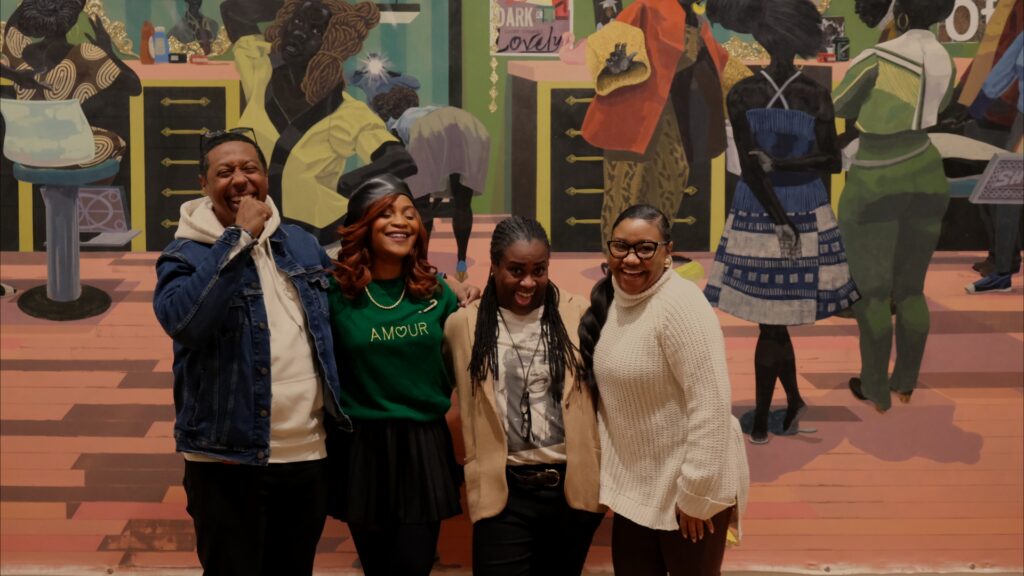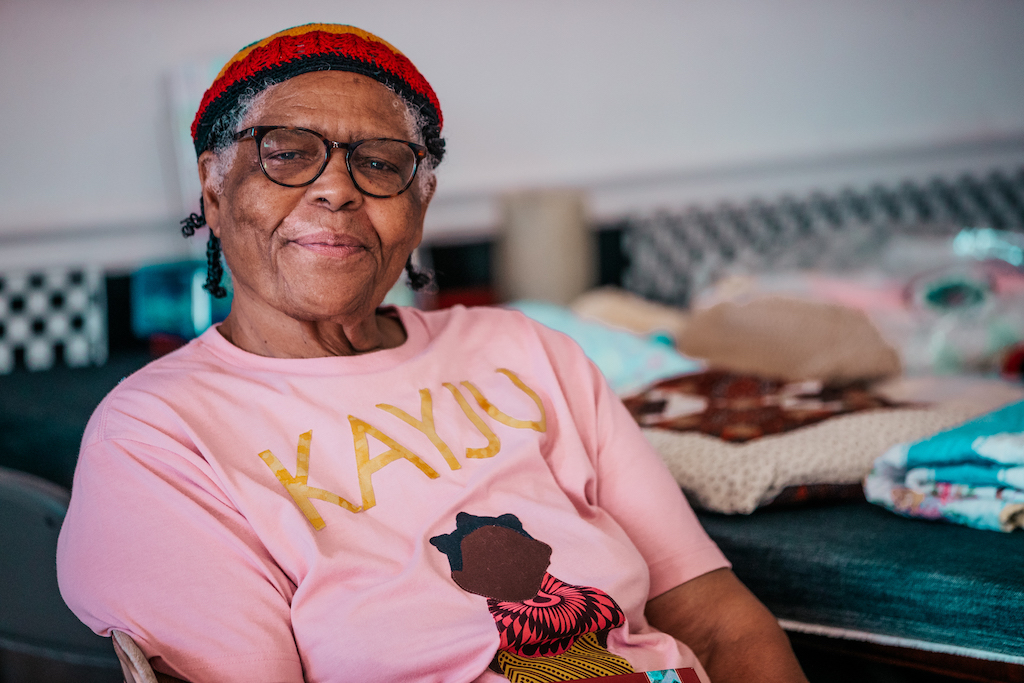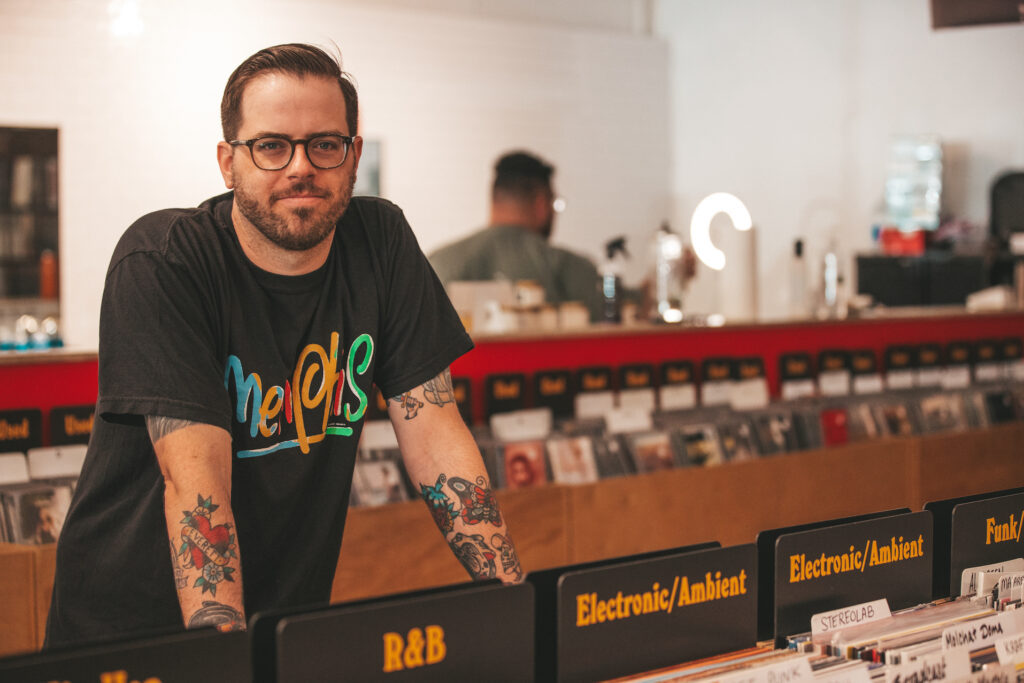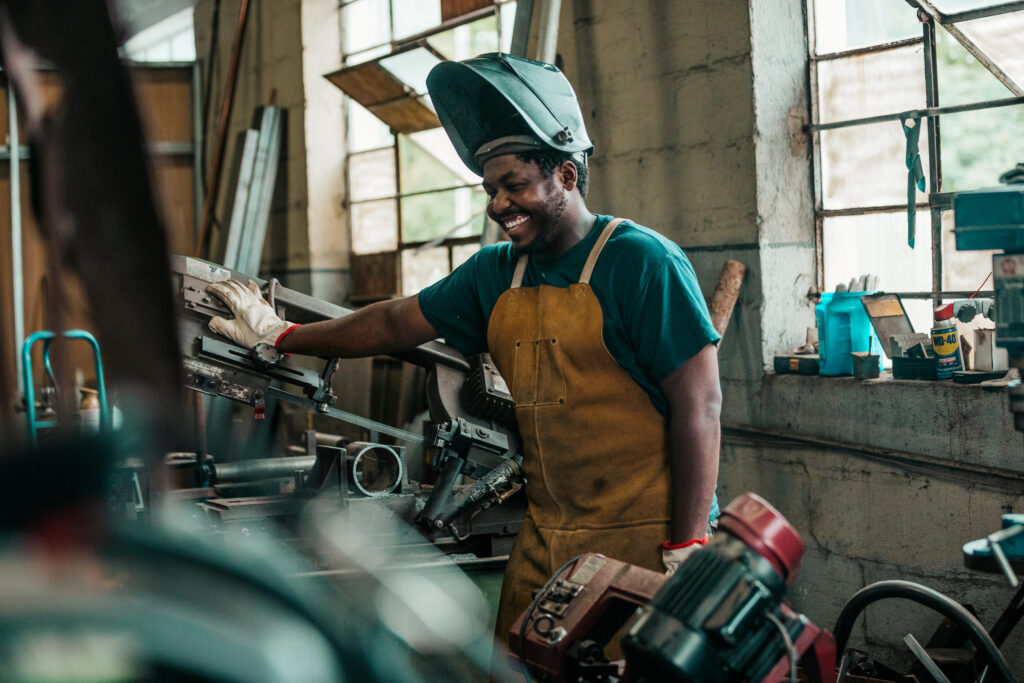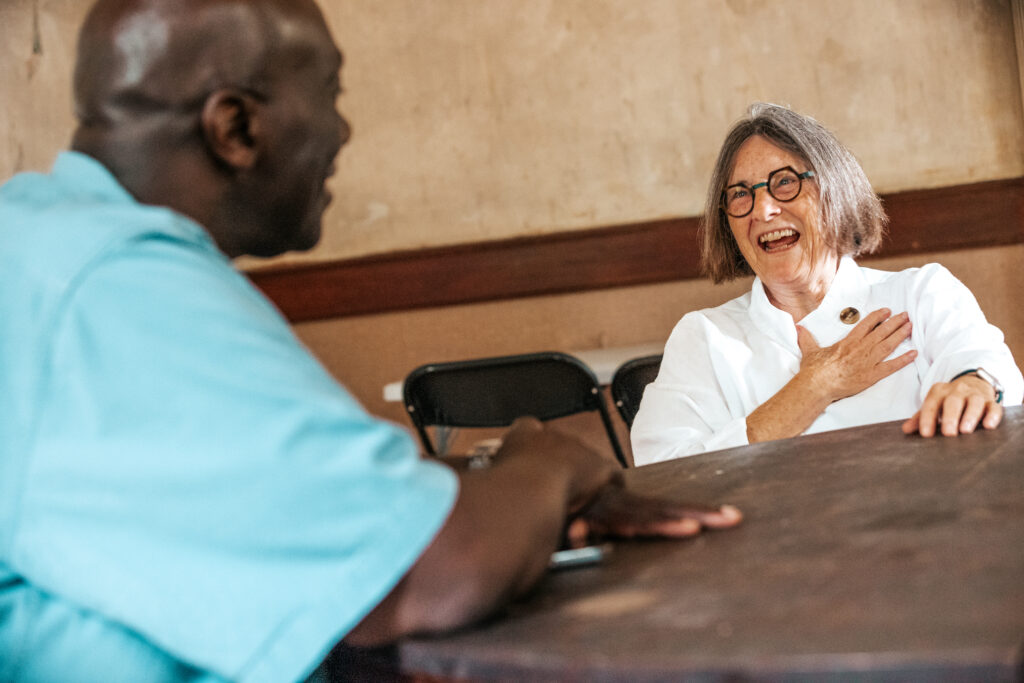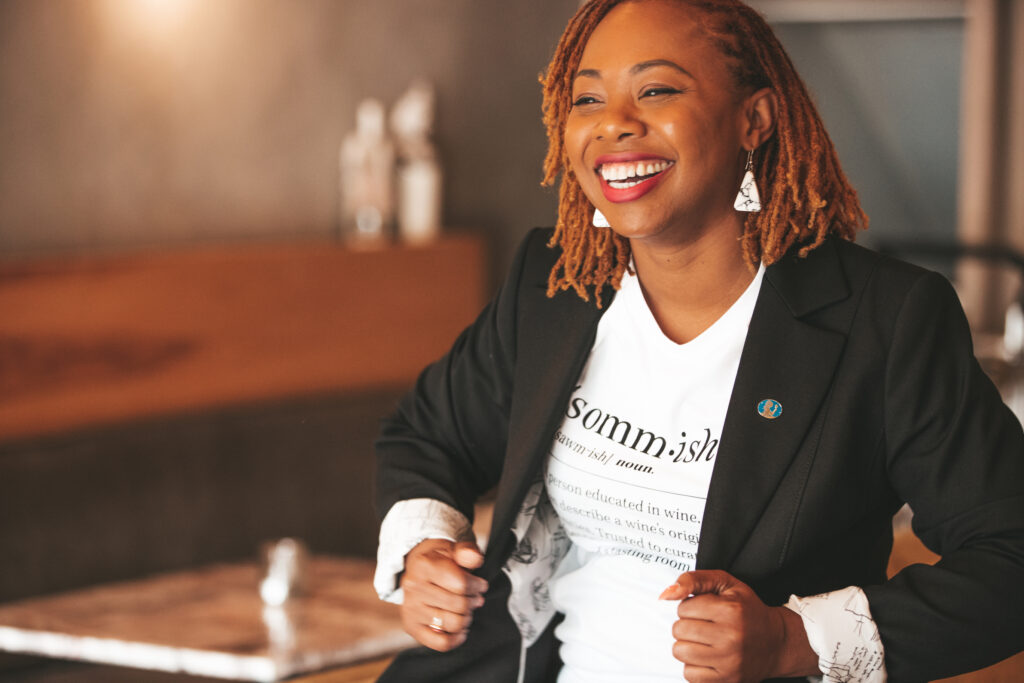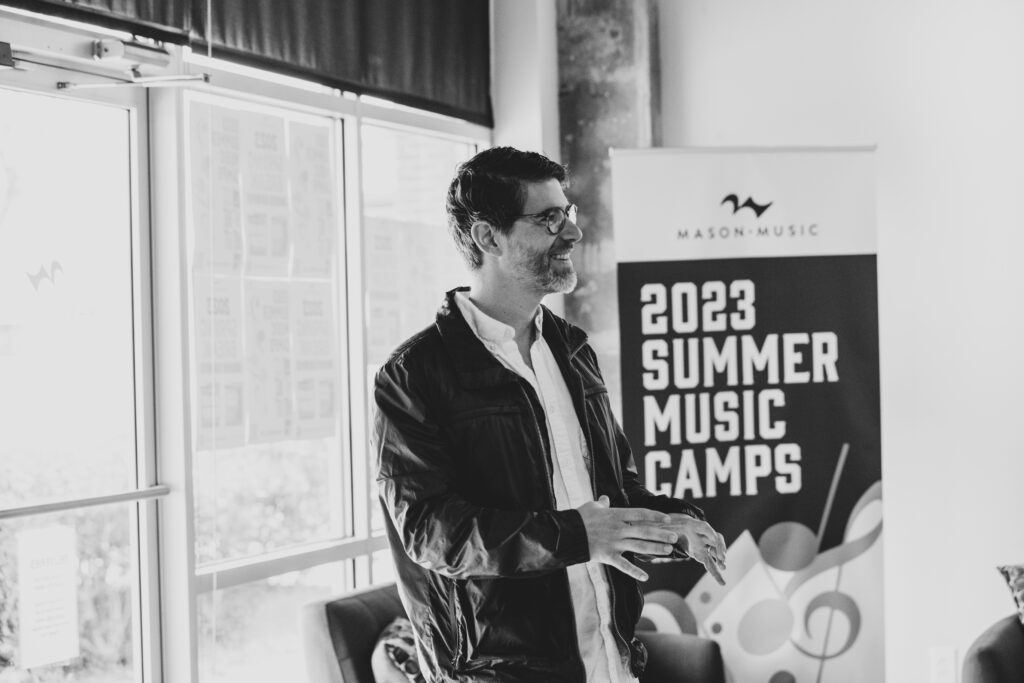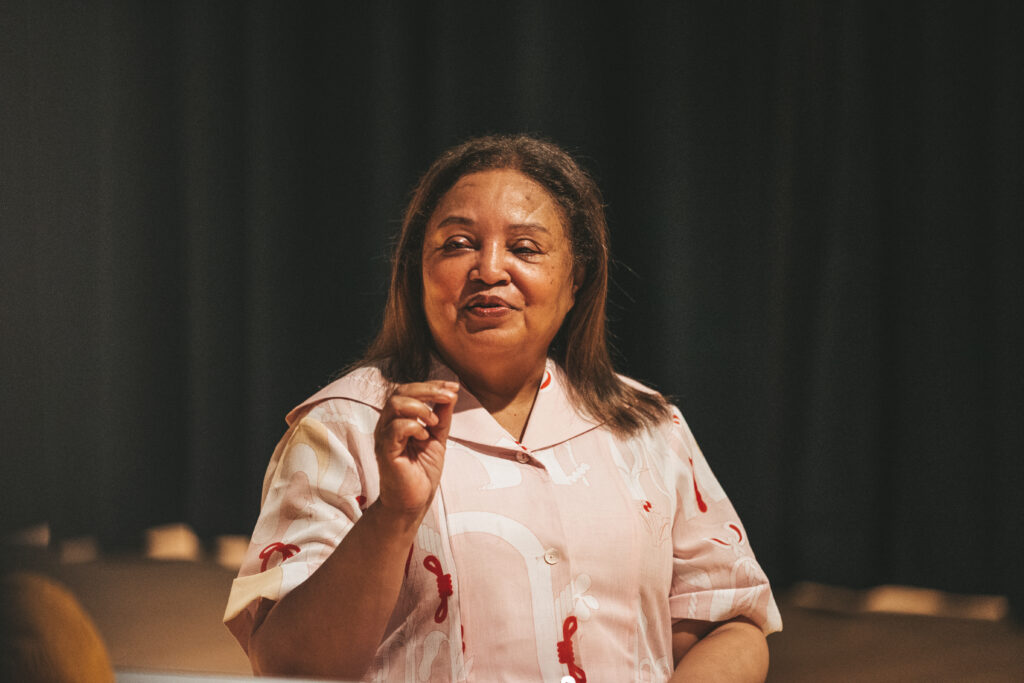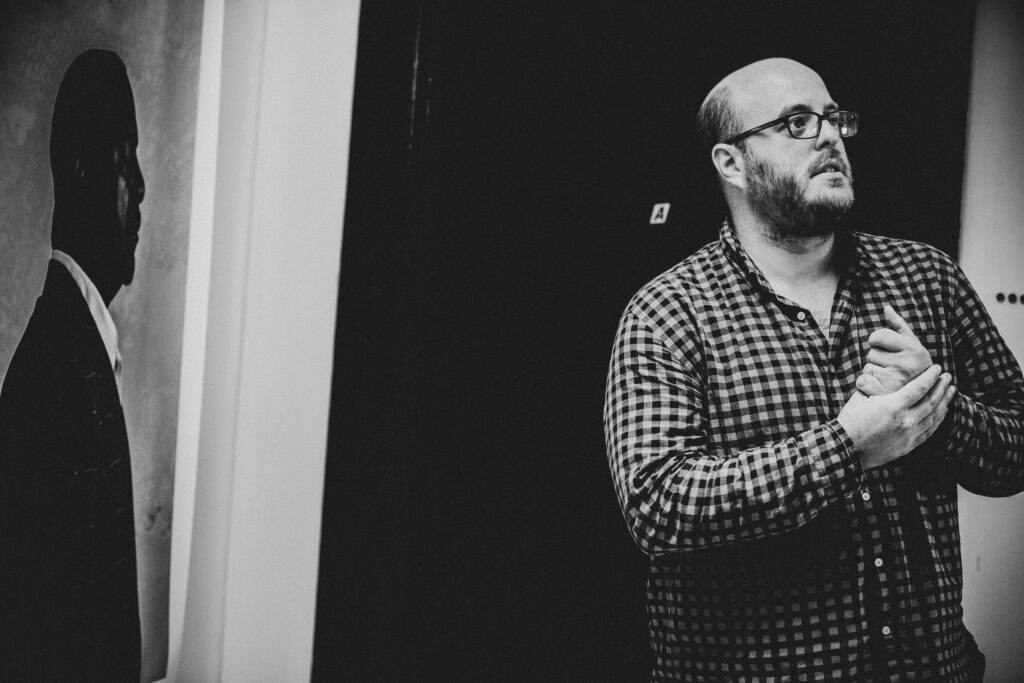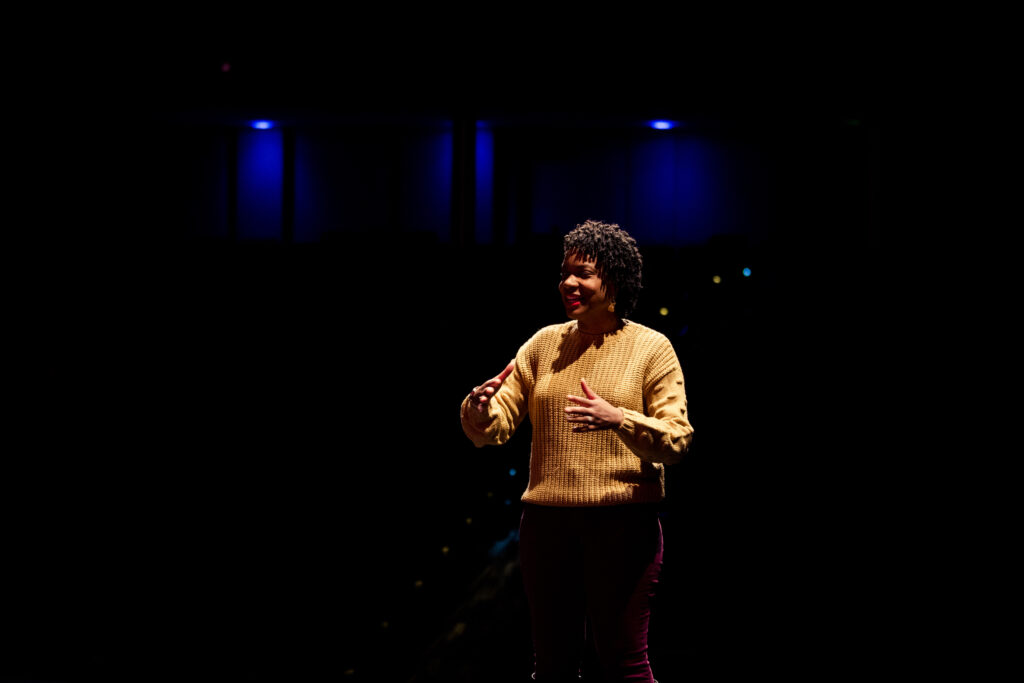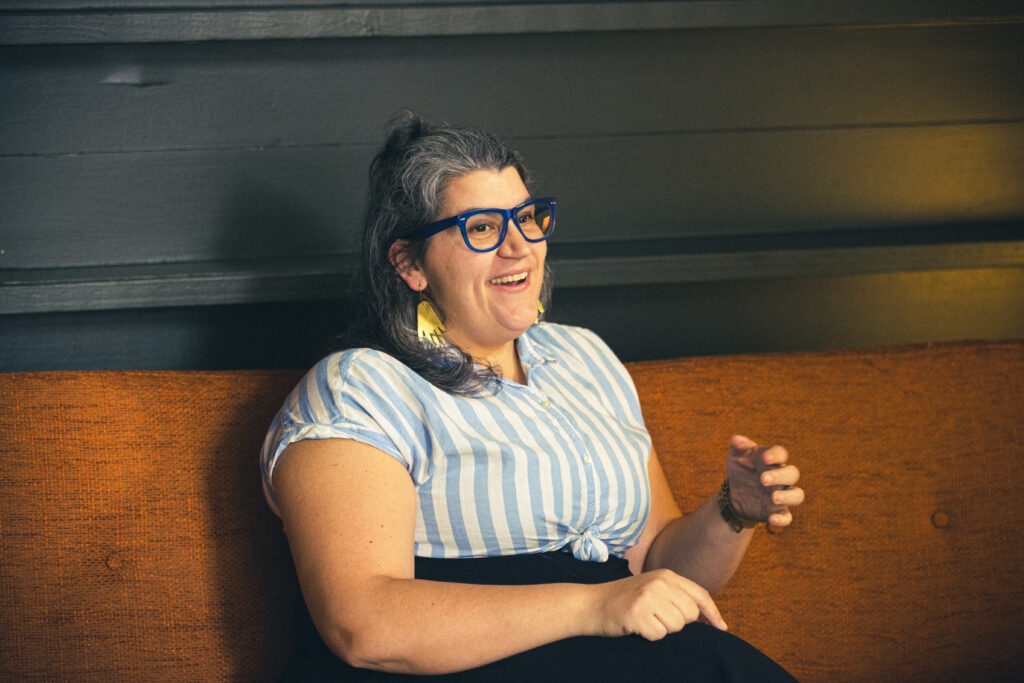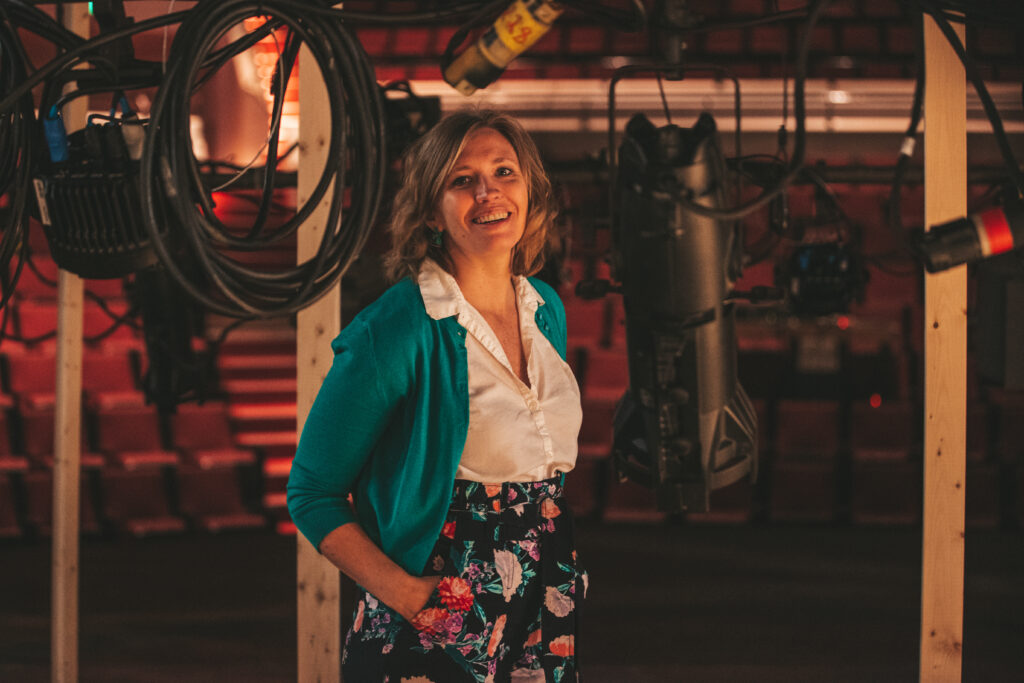 Ashley Woods was promoted to Executive Artistic Director of Birmingham Children’s Theatre (BCT) in July 2020 after joining in 2017 as the Associate Artistic Director. She walks us through her theater journey and artistic vision. Who is theater for, will it last, and what does it do? And, of course, we touch on the upcoming world premiere of Miss Fancy: Elephant Queen of the Zoo!
Ashley Woods was promoted to Executive Artistic Director of Birmingham Children’s Theatre (BCT) in July 2020 after joining in 2017 as the Associate Artistic Director. She walks us through her theater journey and artistic vision. Who is theater for, will it last, and what does it do? And, of course, we touch on the upcoming world premiere of Miss Fancy: Elephant Queen of the Zoo!
Ashley, the timing of your promotion to Executive Artistic Director of Birmingham Children’s Theatre immediately stood out… the pandemic was in its early stages, and there was so little information available. How did that inform your leadership style and maybe even your ambitions for BCT?
I had previously been the Managing Director at Birmingham Children’s Theatre (BCT) so when we went into the pandemic, I was already doing the work needed to keep us going and keep our staff employed.
The PPP loan allowed us to hire the full staff back through July. But just as I transitioned into the role, our PPP loan was out, and we were faced with layoffs. There were only three people on staff that summer. It was a skeleton crew.
As for my leadership style, generally, I’m a people-first leader. It is people who make the art, so their experience ends up being the experience of the entire theatre. The work is better and serves our audiences better when our people are fulfilled and taken care of. I focused on that early on and got creative about how we could serve the students of Alabama through the pandemic. Without the children, we don’t have an organization. It was really necessary to find a way to continue to reach our audiences and make sure that we weren’t adding stress to our theatre professionals in that difficult time.
 As for ambition, honestly, I wasn’t thinking of any of that in 2020. It was survival time. We were focused on month-to-month and then quarter-to-quarter while trying to stay true to our values and remain forward-focused.
As for ambition, honestly, I wasn’t thinking of any of that in 2020. It was survival time. We were focused on month-to-month and then quarter-to-quarter while trying to stay true to our values and remain forward-focused.
Do you think any of the pandemic changes for performing arts and artists are here to stay?
I think some of the pandemic changes for artists specifically are there to stay. The arts are a very difficult industry to live and succeed in. There was an opportunity during the pandemic for artists to better advocate for themselves.
We’re very proud to be able to pay all of our professional artists, and we didn’t lower any wages. Our company was focused on that already, but now more attention has been called to this industry-wide and mobilized artists, so I don’t think that’s going anywhere.
We also dipped into virtual programming, but interest has plummeted since the pandemic recovery. Virtual options definitely increase accessibility, but we haven’t seen a lot of interest locally. We’re open to it, but right now, we don’t have a lot of audience demand, and I’m not sure the virtual option, prompted by the pandemic, will last.
Did you grow up doing theatre? If so, when did you start?
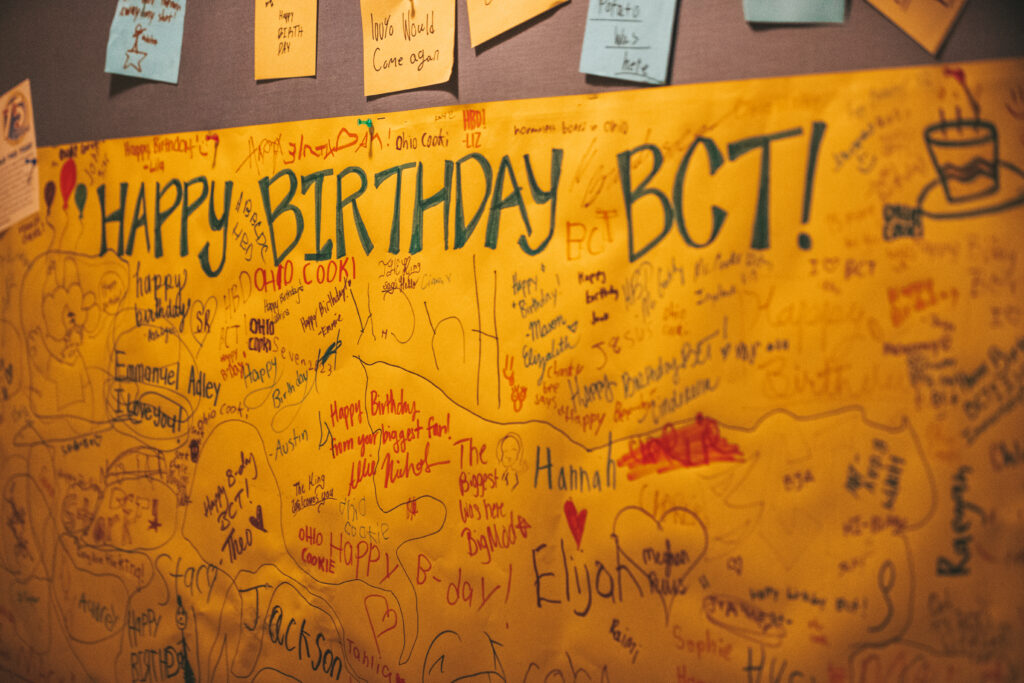 Yes. I grew up in Mankato, Minnesota. I was in dance from the time I was four. When I got into high school, I started dancing in musicals and eventually started doing the backstage work. That’s where I fell in love with scenic design. I had a fantastic regional scenic designer mentor who came into our school and saw some inherent talent in my artistry. She encouraged me to go to school for my passion. I ended up with a degree in costume and scenic design.
Yes. I grew up in Mankato, Minnesota. I was in dance from the time I was four. When I got into high school, I started dancing in musicals and eventually started doing the backstage work. That’s where I fell in love with scenic design. I had a fantastic regional scenic designer mentor who came into our school and saw some inherent talent in my artistry. She encouraged me to go to school for my passion. I ended up with a degree in costume and scenic design.
I moved to Chicago and freelanced for about nine years. I got involved in arts administration for small theatre companies in various roles.
In 2017 I was looking to make some changes and got hired at BCT as the Production Manager. I moved here in October of 2017 after only visiting Birmingham once. I had been involved in children’s theatre, so I knew I’d like that part of the job. My roles have shifted from Production Manager, to Associate Artistic Director, to Managing Director, to Executive Artistic Director.
My primary focus has always been scenic design and painting, at least as an artist, and what I love about scenic design is that it’s world-building. I can see the parallels between those job skills and how they translate into leading a theatre company… especially in recent years, as we have to constantly reimagine what our world looks like. Moving from scenic design to arts administration is not the traditional path, but I found the transition to be very smooth.
And what might you say about your experience as a professional artist in Birmingham as compared to Chicago?
 For me, what’s most obvious, Chicago is filled with opportunities with hundreds of theatres. There are so many jobs available for recent graduates. In Birmingham, there are lots of college theatre departments but only a few paying theaters to give opportunities to young professionals and graduates. Without more paid opportunities, we see students graduate and move away. It’s frustrating to lose our talent. I’d love to see Birmingham support professional local artists so that the talent we have can stay put. When I graduated, I had to move because there weren’t any local professional opportunities, so I know I understand that journey and know how important it is to build a robust, locally sourced art community in our City.
For me, what’s most obvious, Chicago is filled with opportunities with hundreds of theatres. There are so many jobs available for recent graduates. In Birmingham, there are lots of college theatre departments but only a few paying theaters to give opportunities to young professionals and graduates. Without more paid opportunities, we see students graduate and move away. It’s frustrating to lose our talent. I’d love to see Birmingham support professional local artists so that the talent we have can stay put. When I graduated, I had to move because there weren’t any local professional opportunities, so I know I understand that journey and know how important it is to build a robust, locally sourced art community in our City.
Working with children in the arts is incredibly rewarding. But from an executive/fundraising perspective, it can be challenging because the impact can be difficult to measure. How do you overcome that?
My primary strategy to overcome that is to get more parents into the theatre with their children. Our teachers really understand the value of what we do here, but they’re not in the position to fundraise. Individual families have more capacity to be big supporters of the organization. We also work really hard to find foundational grants and sponsorships. I always joke if the kids had money, I think they’d donate! Our immediate fans who love what they see here can’t financially support the organization. We need the parents to be excited too. We’re looking out to larger businesses and corporations to support our work. We just continue to carry on and gain support from wherever we can.
What do you hope children gain from BCT?
 There are a few things. We speak a lot about empathy. I think empathy is taught and can be taught from a young age, so that’s a big takeaway. For individuals, we don’t know where they’re coming from or what their home life is like. With our shows, we try to entertain and make sure it’s the best hour of their week.
There are a few things. We speak a lot about empathy. I think empathy is taught and can be taught from a young age, so that’s a big takeaway. For individuals, we don’t know where they’re coming from or what their home life is like. With our shows, we try to entertain and make sure it’s the best hour of their week.
When kids come into the theatre, there is an opportunity to wash away the rest of the world so they can enjoy these moments with their classmates and might even see a reflection of themselves in the stories we tell. That experience can help them process whatever they’re going through. That’s really powerful, and then they take it out into the world. We don’t know where it goes or what happens, but like a pebble in the water, we believe it ripples.
We try really hard to feature shows that are told from a youthful perspective. When we have shows with a young protagonist, it gives kids an immediate connection to the character and story. I hope BCT kids gain empathy, joy, and imagination. That they know the world can look different than it currently does.
How will live theatre stay relevant? Any major shifts that you and your team are noticing?
I know people have always been hesitant to try new things, but I do think it’s been exaggerated by the pandemic. When big brands come to the BJCC, we see families flock in. That’s a bit scary for the art world. Art needs to change and have new movements to it. Art dies if we tell the same stories again and again. BCT is committed to carrying forward with new work. Remember, even shows like Hamilton started as something new at one point.
So many eras throughout time have said theatre is a dying art form, and yet, we’re still here. There is something that’s hard to define but very recognizable about being in a live audience with other people. Live theatre is a collective experience that isn’t offered in most other places. Sports is probably the most similar comparison. It looks different here, but they’re derived from the same pieces of history. I think that human beings inherently create connection and that’s what theatre offers. Even when things get difficult there is still going to be that desire. It’s unique to live theatre, and that’s the hope we hang onto.
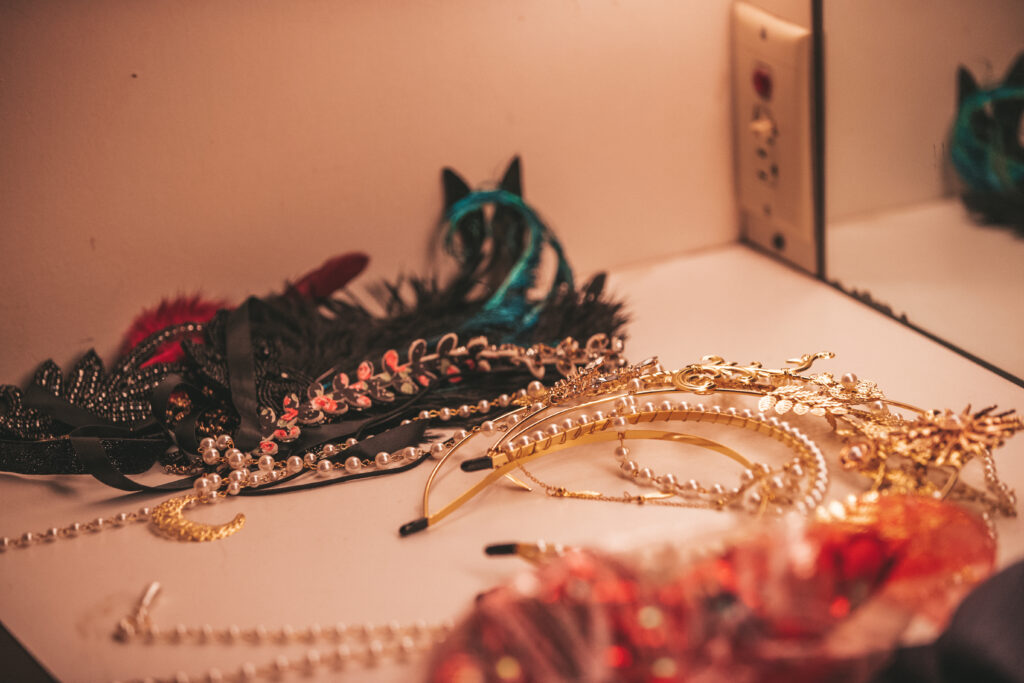 How far in advance do you plan your season? And what stories inspire you most?
How far in advance do you plan your season? And what stories inspire you most?
We are constantly in the process of thinking about what is coming next, and seasons are planned about a year out. We have this fun script club where the entire staff reads scripts and presents the ones we like to be considered for next season. We even have script readings out loud sometimes.
We make sure scripts meet our criteria and connect to our mission. We like stories that give young people autonomy and independence and stories that have problem-solving. We also do a lot of work based on books. There is a new literacy act in Alabama, so it’s a priority for educators and informs some of our selections.
Finally, hope is a word that comes up often in these conversations. We want to make sure that we’re seeing stories from diverse perspectives where young people are the center of the plot line. I like when adult characters play supportive roles to young people. They can be cheesy, but I think some cheesy hopefulness isn’t so bad.
Theatre is an art form that absolutely demands vulnerability. You cannot hide behind the work. You have to lend your voice, your movement, your presence, and sometimes, literally, a spotlight. Do you think that transformation is more challenging today? Why or why not?
I know we’re talking about it more today. I don’t know if it’s making the transformation more difficult or alleviating it. But we’re paying more attention to the actors’ experience, and I hope that conversation is empowering the artists. It’s hard to get centered again and get on stage with all the competing things of today.
We actually start every show with expressions about boundaries so folks can share and set personal expectations for the day. That has altered how the rooms feel from pre-pandemic to now. We’re still learning and adapting those practices. I really appreciate the fact that the conversations can happen. Generally, in theatre culture, artists used to be told to just show up and do the work, regardless of outside influence, and this just isn’t conducive to good work.
What do you say to families who think their kids aren’t theater ready or don’t belong in theater spaces?
Start them young! We have built additional programming that we call theatre for the very young, and those shows are designed for ages 0-5. We expect kids not to sit still the whole time. We encourage them to get up and move. We’ve built some sensory rooms and give kids a break (if needed) during their theatre experience. And we’re not offended if kids need to step out or leave halfway through the show. We keep activities in the lobby and are happy to have them for whatever time period they can be here.
We are truly unphased by kids making noises and moving about. We’re ready for that, and I think it’s more uncomfortable for the parents than for us or our actors… we’re used to the commotion! We’ve built our programs so that kids can grow with the theatre, changing spaces and content as they grow up. We also have class offerings for children as young as 4 so they can learn theatre tools and recognize themselves as audience members.
What’s up next for BCT?
The next show opening is Miss Fancy: Elephant Queen of the Zoo by playwright G. Riley Mills. We commissioned the work in 2019 and have been wanting to debut this play since February of 2021. Our 75th anniversary is the perfect opportunity to do that! The story takes place in 1936 at Birmingham’s Avondale Zoo. The world premiere tells the tale of Miss Fancy, the famous neighborhood elephant, who wanders streets, befriends a little boy, and ultimately puts on a vaudeville spectacle-filled show to save the zoo! It’s showing on March 25th and April 15th at 11:00 am.
I think a lot of people assume that BCT is a professional theatre exclusively for young audiences. The work we do is very professional, very high-quality work. While it’s accessible to young audiences, it’s for all ages. I think Miss Fancy will be that way. If you enjoy art and you enjoy theatre, this show (like so many of our shows) is for you.
